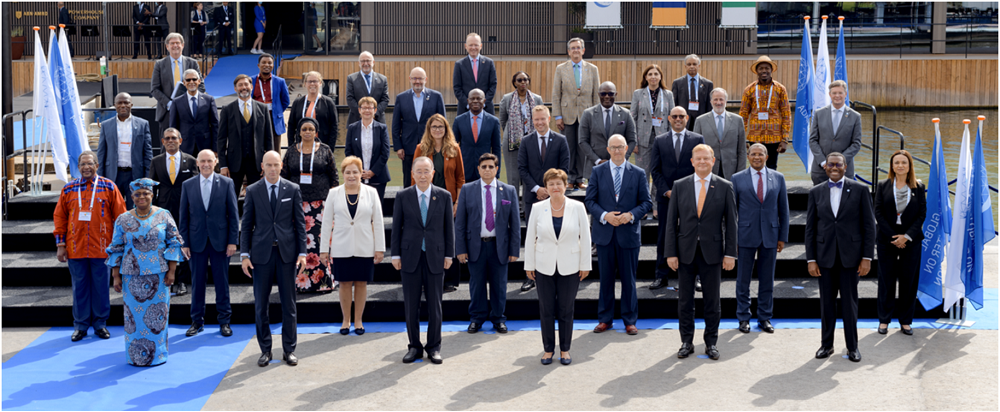
September 09, 2021 Thursday

Photo from the website of Global Center on Adaptation. https://gca.org/news/global-leaders-on-cop26-climate-emergency-demands-policy-shift-to-adaptation/.
MANILA, 10 September 2021 — House Deputy Speaker Loren Legarda echoed the call of global climate leaders to accelerate action for climate change adaptation for the upcoming United Nations Climate Change Conference of the Parties or COP26, during the Global Center on Adaptation (GCA) High-Level Dialogue: “An Adaptation Acceleration Imperative for COP26” held Monday, September 6.
The dialogue of the GCA—an international initiative to raise the profile of adaptation and accelerate solutions—concluded with the adoption of a Communiqué, which called on countries to prioritize adaptation as much as the mitigation of carbon emissions.
“The world must accelerate and scale up its effort to stay within 1.5°C warming. In parallel, adaptation is urgent. Adaptation has not benefited from the same attention, resources, or level of action on the ground as mitigation, leaving communities worldwide exposed to a climate emergency unfolding faster than predicted. Adaptation can no longer go under-prioritized,” the Communiqué noted.
“Countries are ready for new ambition on adaptation, and they are ready for much scaled up financing for adaptation too. For this, solutions already out there need to be shared and put into place,” said 8th UN Secretary General and GCA CEO Ban Ki-moon.
Legarda, who serves as GCA Board Member, welcomed the dialogue outcome, pointing to the need for concrete ways forward to “constantly raise ambition” in combating the global climate emergency. Legarda has pushed for a clear and concrete delivery plan for the USD 100 billion yearly financing committed under the Paris Agreement—through aggregate and individual public contributions from all developed nations yearly, over and above overseas development assistance; public and private mobilization of financing to reach at least $500 billion in 50:50 balanced flows for the period 2020-24; setting in place debt and grant proportions for developed countries, with a shift to grants for adaptation; and transparency in implementation through annual independent tracking.
“Every country must have adequate information on local climate risks and hazards in order to identify fit-for-purpose, responsive, and community-based adaptation such as multi-hazard early warning systems, flood prevention measures, and nature-based solutions,” Legarda said.
“Through this, we should estimate the total amount of funding these measures would require, and how much is available and still to be sourced from domestic and foreign funding mechanisms,” she added.
The Communiqué also outlined several steps to accelerate adaptation, including constantly raising ambition year-on-year, rebuilding confidence in climate finance through clear delivery on the annual USD 100 billion commitment, mainstreaming adaptation, and promoting partnerships, among others.
“With every additional warming, the larger the challenges and the changes in our climate—and consequently, the greater level of financing needed. But to even allow global warming past this threshold, knowing full well that we have the capacity to limit it, is simply wrong,” Legarda noted.
“Leading up to COP26, we must maximize our partnership by bridging governments and communities together in order to ensure that we deliver on ambition and financing this crucial decade,” Legarda concluded.